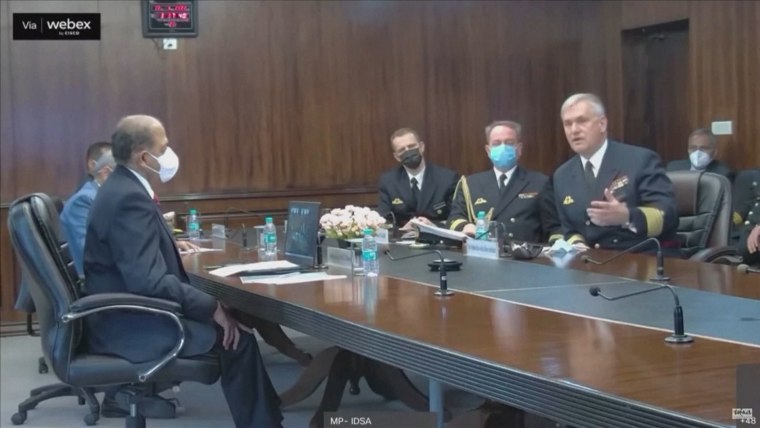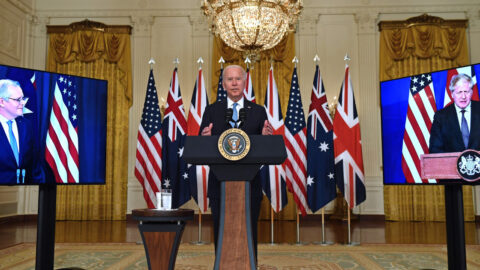With Ukraine under growing threat from Russia, the United States and its NATO allies across Europe are stepping up their response.
But there is one notable country that appears to be holding back: Germany.
As Russian troops have massed on the Ukrainian border, Berlin has resisted pressure from its allies and neighbors to deliver arms to Ukraine while urging “prudence” when it comes to potential economic sanctions against Moscow.
The reluctance of Europe’s leading economic power to join the more robust Western posture has drawn criticism from Kyiv and threatened to undermine the effort to present a strong and united front against Russian aggression.
President Joe Biden came under fire for suggesting there were divisions within the trans-Atlantic alliance on the issue, but that reticence and the resignation of Germany’s Navy chief over the weekend after pro-Kremlin comments have done little to dispel the idea that Berlin might be the weak link in the West’s stand.
Sending weapons “will not help to defuse the crisis at the moment,” German Defense Minister Christine Lambrecht told the weekly newspaper Welt am Sonntag over the weekend. Chancellor Olaf Scholz said Tuesday that his country supports Ukraine’s economy and democracy, but not through the supply of arms.
This position is “rooted in the developments of the last few years and decades,” he said, reflecting a determination not to join or accelerate armed conflict that stems from pacifist sentiment that developed in the wake of the Nazis’ defeat and during the Cold War.
But Germany’s ambivalence came under sharp focus this week when NATO members moved to shore up the alliance’s Eastern flank around Ukraine.
Denmark is sending F-16 fighter jets to nearby Lithuania; Spain is sending ships to join a NATO fleet; France says it’s ready to send troops to Romania; the United Kingdom has sent anti-tank weapons directly to Kyiv; and on Monday night the United States said it had placed 8,500 troops on “heightened alert” as it discusses deploying forces to the region in addition to sending “lethal aid.”
And Berlin also appears to be at least delaying fellow NATO members’ efforts to send their own arms to Ukraine. A German Defense Ministry spokesperson said it was “considering” a request from Estonia to send Kyiv howitzer artillery guns after a report that Berlin was blocking the shipment of the weapons, which used to belong to East Germany. They gave no likely timeline for a decision.
Ukrainian Foreign Minister Dmytro Kuleba has accused Germany of taking a stance that “does not correspond to the level of our relations and the current security situation.” And Kyiv Mayor Vitali Klitschko, a former world heavyweight boxing champion who lived in Germany for years, went further.
“On whose side is the German government today? On the side of freedom, which means — Ukraine? Or on the side of the aggressor?,” he asked on Facebook this week.
Germany said Wednesday it would supply 5,000 military helmets to Ukraine, according to Reuters. But this was in response to a specific request and holds firm with the country’s opposition to providing military aid.
So why is Germany so hesitant to use its power and influence at a time of crisis? A mixture of short-term economic goals and the long shadow of its 20th century history, experts say.
“It’s something that’s always in the back of German minds when they think about foreign policy where it relates to Russia,” said Marcel Dirsus, a nonresident fellow at the Institute for Security Policy at Kiel University, Germany.
The Soviet Union lost an estimated 27 million people in World War II — some of whom were Ukrainian — and Germany’s role in the war is an active factor in Berlin’s decision-making today, Dirsus argued.
Foreign Minister Annalena Baerbock acknowledged the “suffering and destruction that we Germans brought upon the peoples of the Soviet Union” at a joint news conference with her Russian counterpart, Sergey Lavrov, in Moscow last week. She added that there would be a tough response if Ukraine was invaded.










Recent Comments